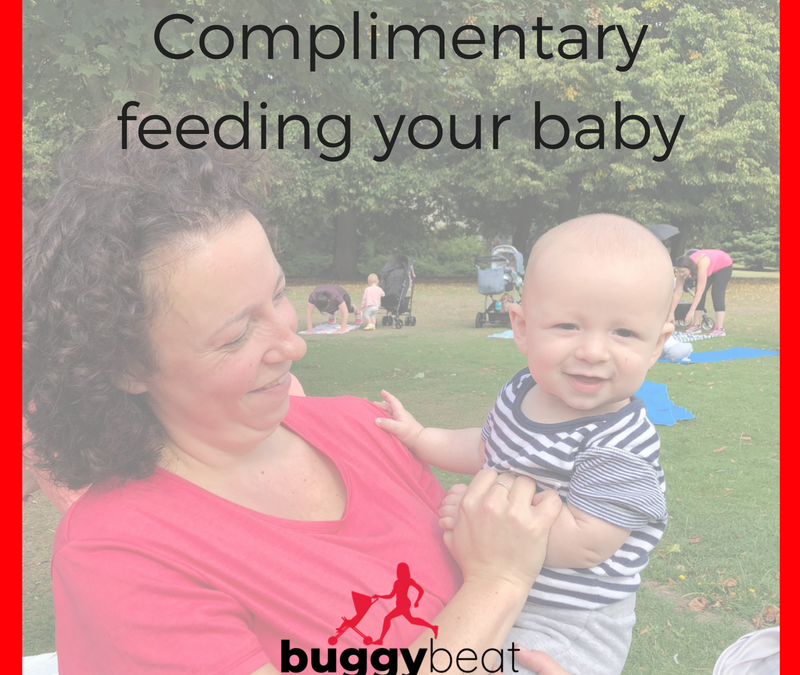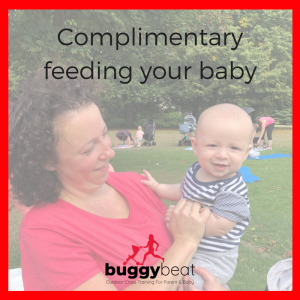Complementary feeding
Complementary feeding or “weaning” means introducing your baby to their first solid foods – you can start doing this when your baby is about six months old. Your baby gets all the fluid, nutrients and energy they need from breastmilk or formula – this is why it’s best to hold off introducing solids until they are around six months old.
When your baby is ready, start by offering small amounts of vegetables, fruit, starchy foods, protein and pasteurised dairy. Remember: never add salt or sugar – they don’t need it.
Babies don’t need three meals a day at first, so you can start by offering them a small amount, at a time that suits you both.
Some babies need a while to get used to new textures, so start with smooth or blended foods on a spoon at first- move on to mashed foods as soon as your baby is ready. By 10-12 months, your baby should be having three meals a day and enjoying a wide range of tastes and textures. As your baby grows, eating together as a family encourages them to develop good eating habits.
Start off with soft vegetables and fruit that are easy enough for them to grip. Then as your baby gets more confident, try toast, pitta bread and strips of meat or fish. Always stay with your baby when they’re eating in case they choke.
The best drink for your baby is plain water. Avoid bottled water as it can contain too much salt (sodium) or sulphate.
If your baby is less than six months old and you’ve started weaning, make sure you sterilise the water by boiling it first. From six months onwards, encourage your baby to drink from a cup instead of a bottle.
Try to include two or three of these food groups for each meal (as guided by the NHS):
Vegetables: Cook to soften them, then mash or purée the veggies to a suitable texture for your baby, or give them as finger foods. Offer a variety of vegetables, including ones with bitter flavours. This could include:
- broccoli
- parsnips
- peppers
- peas
- cauliflower
- swede
- spinach
- green beans
- courgette
- asparagus
- kale
- carrots
- avocado
- butternut squash
- cabbage
Fruit: Mash or purée soft ripe fruits to a suitable texture for your baby, or give them as finger foods. Harder fruits will need to be cooked to soften them. Wash and remove any pips, stones and hard skin. This could include:
- bananas
- blueberries
- kiwi
- oranges
- apples
- raspberries
- mango
- nectarines
- pears
- strawberries
- pineapple
- papaya
- melon
- peach
- plums
Starchy food: These can be cooked and mashed or puréed to a suitable texture for your baby, or offered as finger foods. Cereals can be mixed with breastmilk or first infant formula – or with pasteurised whole (full-fat) cows’ milk (or goats’ or sheep’s milk) if your baby is over six months old. This could include:
- potato
- sweet potato
- rice
- baby rice
- pasta
- porridge
- oats
- oatmeal
- cornmeal
- maize
- millet
- quinoa
- toast
- bread
- chapatti
- pitta bread
Protein foods: This food group includes meat, fish, eggs, beans and pulses and is suitable from about six months.
As well as giving your baby protein, these foods contain other useful nutrients, such as iron and zinc, which are important for babies.
Eggs produced under the British Lion Code of Practice (stamped with the red lion) are considered very low risk for salmonella, and safe for babies and toddlers to eat raw or partially cooked. This could include:
- chicken
- turkey
- beef
- lamb
- pork
- fish (no bones)
- egg
- lentils
- beans
- tofu
- pulses, such as chickpeas
Dairy: Pasteurised dairy foods such as pasteurised full-fat yoghurt and cheese are suitable foods for your baby from six months.
Full-fat, unsweetened or plain yoghurts are a good choice because they don’t contain added sugars.
Whole pasteurised (full-fat) cows’ milk, or goats’ or sheep’s milk, can be used in cooking or mixed with food from six months old, but not as a drink until your baby is 12 months.
Homemade food is always better than shop-bought!
We hope you found this helpful today!
Do you want to join our parent and baby cross training classes? Start your free trial today near you click here


